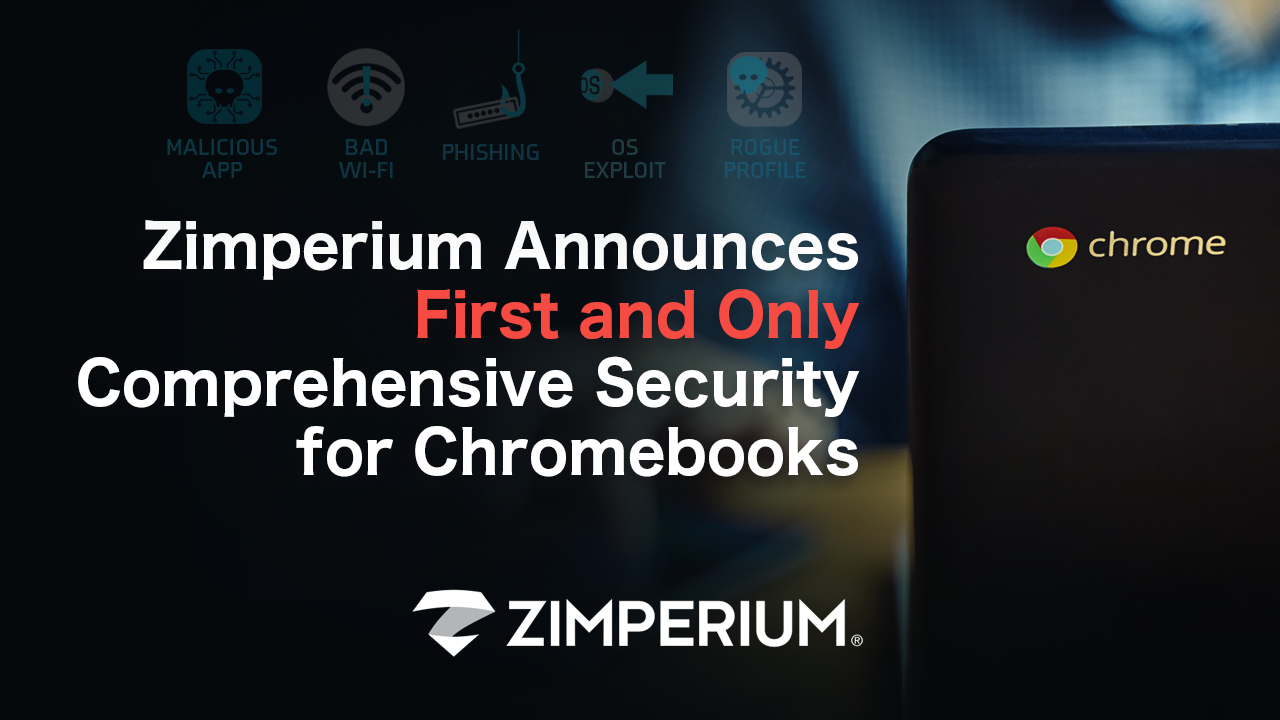
Machine learning-based solution goes beyond detecting known malware; protects against device, network, phishing and malicious app attacks
“zIPS for Chromebooks” is the first and only comprehensive, on-device, machine learning-based security solution for Chromebooks.
zIPS for Chromebooks is not a new product, but the extension of our award-winning zIPS solution to support the new platform. Utilizing its real-time, on-device, machine learning-based technology that has been detecting and preventing attacks on iOS and Android endpoints for years, zIPS for Chromebooks helps enterprises and educational institutions reduce their risk by detecting the most advanced device, network, phishing and malicious app attacks.
“Chromebooks have become ubiquitous in enterprise, educational, public sector and other environments, but they also present significant cybersecurity risk,” said Shridhar Mittal, our CEO. “From schools relying on Chromebooks for remote education to enterprises using them to enable remote call centers, zIPS for Chromebooks is a welcome resource to protect the privacy and security of both users and the institution.
Unfortunately, an increase in usage brings increases in mobile privacy and security risks and threats including:
- Phishing attacks resulting in stealing the identity of the student/user;
- Network attacks where student personal information is accessed; and
- Malicious malware in apps taking control of microphones and cameras remotely turned on and other privacy-invasive actions.
zIPS for Chromebooks – through its machine learning-based technology – detects and remediates against those attacks (and more):
- Identifying and blocking users from accessing phishing sites;
- Detection of malicious WiFi networks and alerting users to disconnect from the network; and
- Assessment of all Android apps for undesired violations of privacy, or unsecure development practice
zIPS for Chromebook’s on-device design also protects user privacy and provides local, continuous assessments of the mobile endpoint to protect use cases such as Zero Trust and two-factor authentication (2FA), risk and privacy assessment.
Additionally, administrators finally have centralized visibility into any attacks so they can take quick action and events can be correlated and viewed in external SIEM and data collection services.
As K-12 Chromebook usage increases, students and educators now protected from attacks
In January 2019, 9to5Google reported Chromebook usage in K-12 at more than 30 million worldwide and signs indicate more growth. In addition, pandemic concerns regarding in-person attendance during 2020-2021 may very well further Chromebook distribution and usage, with schools opting for online teaching.
“Specifically for the educational system, zIPS for Chromebooks provides peace of mind,” Shridhar said. “Educators, parents and older students will be able to remediate while maintaining the strictest of privacy.”
Learn more
On Wednesday, July 8th at 11am EDT, cybersecurity and mobility experts from Zimperium and CDW will:
- Discuss the increased usage of Chromebooks post-COVID for remote education and work;
- Explain the device, network, phishing and malicious app attacks targeting Chromebook users; and
- Demonstrate live attacks and how zIPS for Chromebooks detects and protects users.
To learn more about zIPS for Chromebooks, contact Zimperium.


